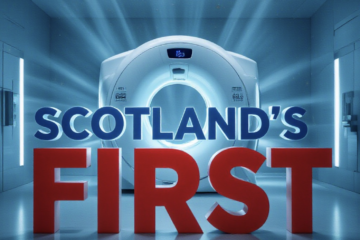A coalition of 17 leading health and charity groups in Scotland has launched a bold manifesto calling for urgent government action to fix the nation’s growing mental health crisis. Released on September 15, 2025, the document urges political parties to prioritize mental health reforms ahead of the 2026 Scottish Parliament elections, focusing on better funding, early support, and community care to address rising demand and long wait times.
Key Demands from the Manifesto
The manifesto, titled “Scotland’s Mental Health: It’s Time for Action,” comes from Scotland’s Mental Health Partnership. It highlights a sharp rise in mental health issues, with data showing one in five Scots facing long-term conditions that affect their daily lives.
Experts point to factors like economic pressures, the lasting effects of the COVID-19 pandemic, and recent budget cuts that have strained services. The groups argue that current funding falls short, leading to burnt-out staff and record waiting lists for treatments.
To tackle this, the partnership proposes several targeted changes. These include creating a dedicated Minister for Mental Health and Wellbeing to lead efforts across all government policies.
They also call for a new £20 million fund to improve mental health services, with a focus on prevention and early intervention programs in schools and communities.
Recent surveys show that mental health wait times have doubled in some areas since 2023, underscoring the need for swift reforms.

Why Scotland Faces a Mental Health Emergency
Scotland’s mental health system is under severe strain, according to leading psychiatrists. A June 2025 report from the Royal College of Psychiatrists in Scotland declared a national emergency, citing increased suicide rates and unmet needs among young people.
Poverty and inequality play big roles, with lower-income areas reporting higher rates of depression and anxiety. The partnership notes that the government’s 2023 Mental Health and Wellbeing Strategy promised improvements, but progress has been slow due to funding gaps.
Community projects have shown promise, like those funded by a £30 million government boost in 2024 for prevention efforts. Yet, experts say more is needed to build on these gains.
The manifesto stresses the importance of mental health literacy, pushing for education campaigns to reduce stigma and encourage people to seek help early.
With elections approaching, the groups warn that without action, the crisis could worsen, affecting productivity and overall wellbeing across the country.
| Mental Health Challenge | Impact in Scotland (2025 Data) |
|---|---|
| Waiting Lists | Over 100,000 people waiting more than 12 weeks for first appointments |
| Workforce Shortages | 15% vacancy rate in mental health nursing roles |
| Youth Mental Health | 30% of teens report high anxiety levels, up from 20% in 2020 |
| Funding Gap | Services underfunded by £500 million annually compared to demand |
Proposed Solutions and Policy Changes
The partnership wants mental health integrated into all policies, from education to housing. This “mental health in all policies” approach would ensure decisions consider wellbeing impacts.
One key ask is expanding community-based care to reduce hospital admissions. This could include more link workers in GP practices, building on the Scottish National Party’s 2021 promise of 1,000 such staff.
They also demand better support for specific groups, like those with ADHD and autism, following calls for urgent reviews of these services.
Investing in digital tools, such as apps for self-help, is another suggestion to reach remote areas.
The manifesto draws from successful campaigns, like recent dementia initiatives that influenced government actions, showing how targeted advocacy can drive change.
Overall, the groups estimate these reforms could save the economy billions by reducing lost workdays due to poor mental health.
Reactions from Leaders and the Public
Gordon Johnston, Policy Lead for the partnership, stated that the time for planning is over and bold measures are essential to end the emergency. He emphasized the need for coherent proposals to make real progress.
Public response on social media has been strong, with many users sharing stories of long waits and calling for parties to adopt the manifesto’s ideas in their platforms.
Political figures have started to react. Some opposition leaders praised the calls, while government officials noted ongoing investments but admitted more work is needed.
Charity leaders involved, including those from the Mental Health Foundation and Scottish Recovery Network, stress that this is a chance for lasting change.
As the 2026 elections near, the manifesto aims to shape party agendas, much like youth parliament efforts that influenced past policies.
- Increased funding for early intervention to prevent crises.
- Dedicated minister role for focused leadership.
- Community care expansion to ease hospital burdens.
- Education programs to boost mental health awareness.
Impact on Upcoming Elections
The 2026 Scottish Parliament elections could hinge on health issues, with polls showing mental health as a top voter concern. Parties like the SNP have made past commitments, such as extra funding in 2024, but critics say delivery has lagged.
This manifesto joins others, like those from walking charities and youth groups, all pushing for a healthier Scotland.
Voters in areas hit hard by the crisis, such as rural communities, may look closely at how candidates respond.
Experts predict that adopting these demands could improve public trust in the NHS and government handling of health matters.
With economic challenges ongoing, addressing mental health could also support broader recovery efforts post-pandemic.
Broader Context and Future Outlook
Scotland’s mental health struggles mirror global trends, but local factors like harsh winters and isolation amplify them. Recent events, including budget announcements in December 2024 that promised shorter wait times by 2026, show some progress, yet targets from 2022 remain unmet.
The partnership’s call aligns with international pushes for better mental health support, seen in places like Ireland’s 2020 manifesto commitments.
Looking ahead, if implemented, these changes could lower rates of conditions like depression by 20% over five years, based on similar programs elsewhere.
Ongoing advocacy from groups like the Health and Social Care Alliance Scotland keeps the pressure on for human rights-based budgeting in mental health.
In the end, this manifesto serves as a roadmap for a mentally healthier Scotland, urging all parties to act now.
What are your thoughts on these demands? Share this article and comment below to join the conversation on improving mental health in Scotland.


















